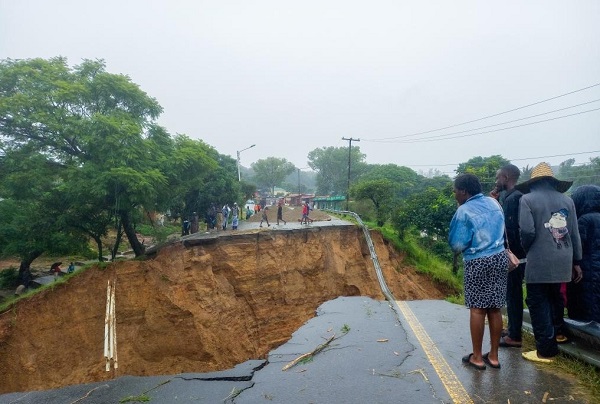United Nations, (Samajweekly) The world body is ramping up support for government response in Malawi and Mozambique after Tropical Cyclone Freddy’s second landfall over the weekend, said the UN Office for the Coordination of Humanitarian Affairs (OCHA).
According to the authorities of Malawi, at least 225 people have been killed and 700 others injured. The cyclone has displaced 88,000 people and affected 186,000 in the country, OCHA added on Wednesday.
The UN and its humanitarian partners are ramping up the response in support of the government-led relief efforts. Authorities say there is a risk of further flooding, and many people are still stranded, said the office.
The government’s immediate priority is search and rescue. OCHA is coordinating with authorities to mobilise additional teams. But difficult weather conditions have hampered rescue efforts. In the past two days, at least 178 people have been rescued, including with the support of boats from the World Food Programme, it added.
Despite inclement weather, OCHA is moving vital supplies to the second-largest city of Blantyre and toward the hardest-hit districts. These supplies include food, shelter, bedding, kitchen sets, mobile latrines, medical supplies, and dignity and hygiene kits, said OCHA.
“We are looking to expand operations as soon as the rains clear.”
Humanitarian workers are supporting Malawi’s Emergency Operations Centre on coordination and assessments, and experts from the UN Satellite Centre are examining the storm’s impact, it added as quoted by Xinhua news agency report.
In Mozambique, where both landfalls took place, the authorities said the cyclone’s second landfall has affected nearly 94,000 people in five provinces — in addition to more than 239,000 people affected by flooding in southern and central Mozambique when the storm first struck on February 24, said OCHA.
The impact of heavy rains and flooding is concerning, particularly as cholera spreads to more areas of the country. The number of cases is rising. As of Tuesday, 54 deaths and nearly 8,700 cases had been reported, it added.
In Zambezia province, more than 9,000 homes have been partially or completely destroyed. Large swathes of land are under water, and roads are not passable, making it difficult for aid workers to carry out assessments, it said.
Still, humanitarian partners there have dispatched enough medical kits for 150,000 people for three months, as well as rapid cholera tests, and tents and fuel to support the General Hospital in Quelimane, it added.
While the full humanitarian impact of the crisis will only be known in the coming days, it is clear that investments in government-led early-warning and early-action initiatives have resulted in fewer fatalities. However, the immediate humanitarian impact and longer-term economic implications for Mozambique are enormous, said OCHA.









